TEKI Design’s café reflects the solution to future coffee shortage
TEKI Design creates the 2050 coffee shop in Kyoto, Japan, as a response to the anticipated challenges in the future of coffee, particularly due to climate change and labor conditions. The café explores the idea of blurring boundaries between customers, staff, and producers, resulting in a space for interaction and mutual influence. Instead of a fixed identity or facade, the shop is shaped by its functions, which are arranged like small dots forming a larger outline. This concept reflects the approach to solving the 2050 coffee problem by addressing smaller, individual issues to collectively form a meaningful solution.
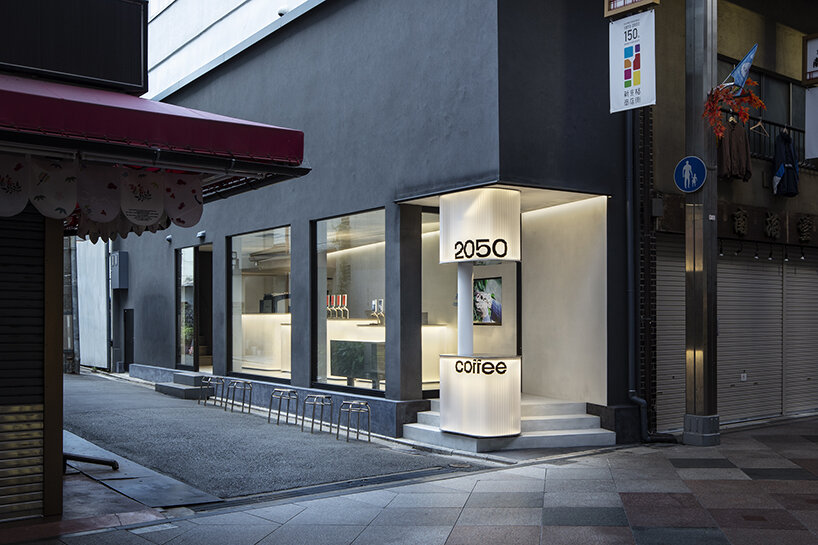
all images by Kenta Hasegawa, courtesy of TEKI Design
the 2050 coffee shop in Kyoto encourages shared experiences
The 2050 coffee problem refers to concerns that by 2050, coffee as we know it may be threatened by environmental and social factors. Rather than focusing on a single, overwhelming challenge, the term highlights the importance of tackling smaller issues that contribute to the larger problem. In the coffee shop by TEKI Design, this philosophy is expressed in the design and operation, where the roles of customers, staff, and producers overlap and interact. The Japanese studio encourages small actions and shared experiences, contributing to the broader conversation about the future of coffee.
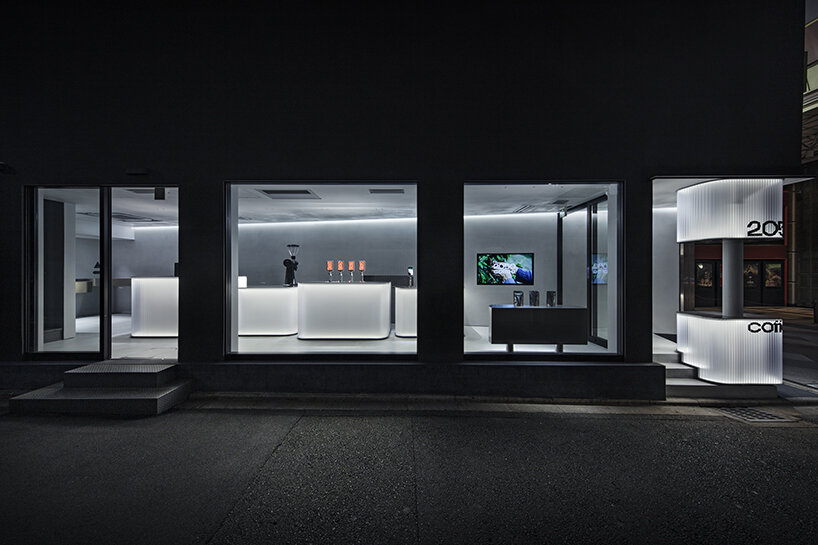
TEKI Design creates the 2050 coffee shop in Kyoto, Japan
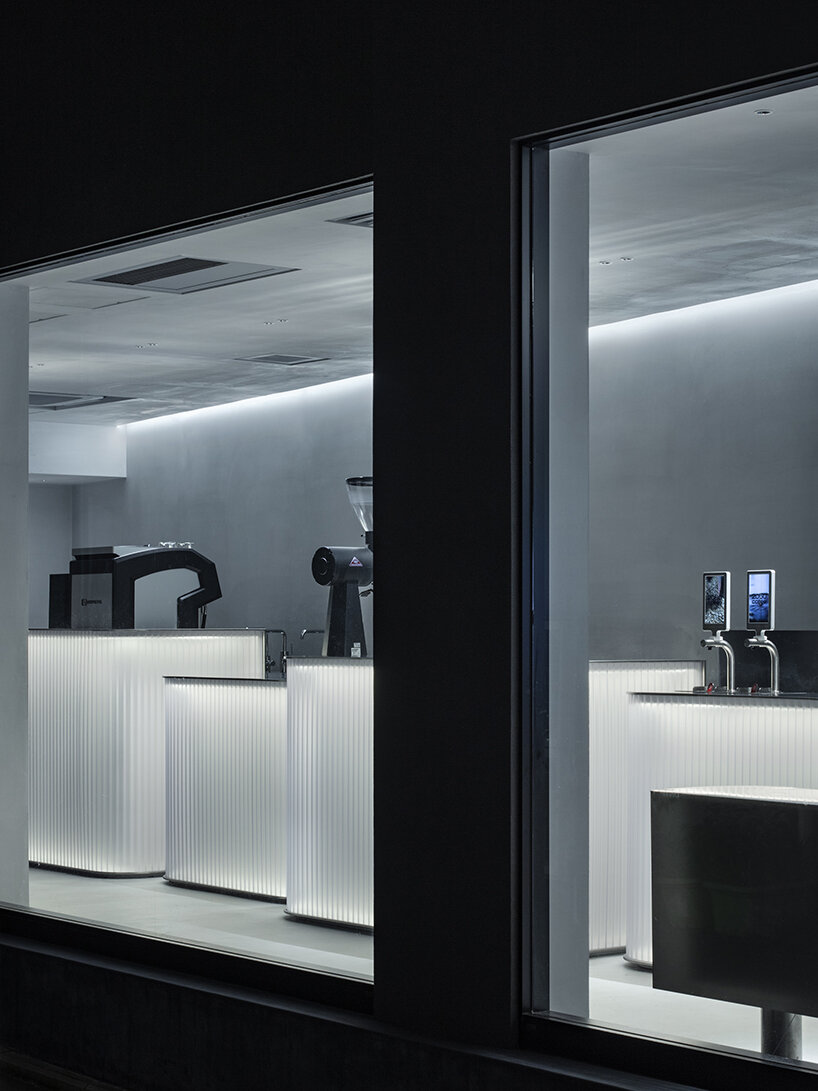
a response to the anticipated challenges in the future of coffee
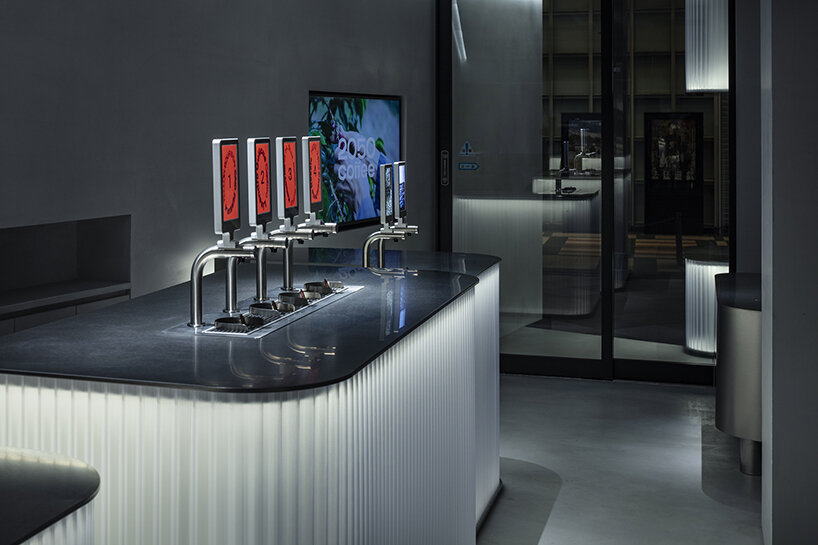
the future of coffee is uncertain due to climate change and labor conditions
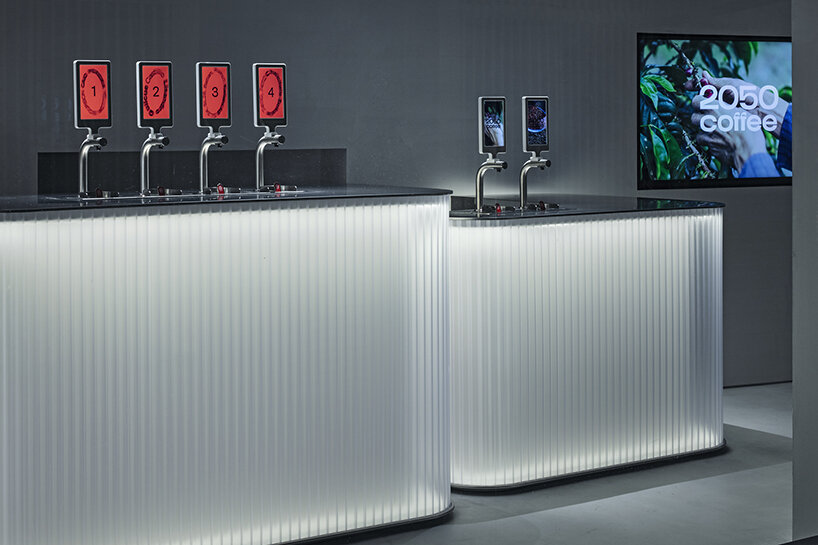
blurring boundaries between customers, staff, and producers
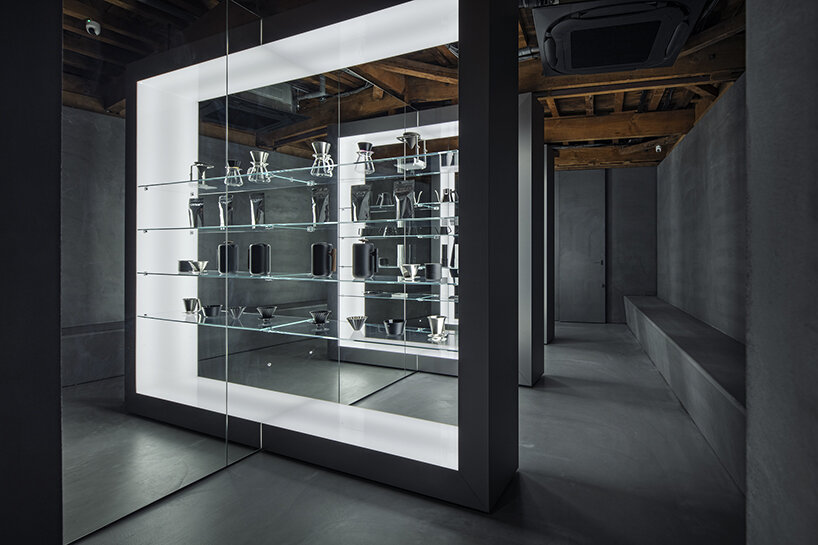
2050 coffee shop is a space for interaction and mutual influence
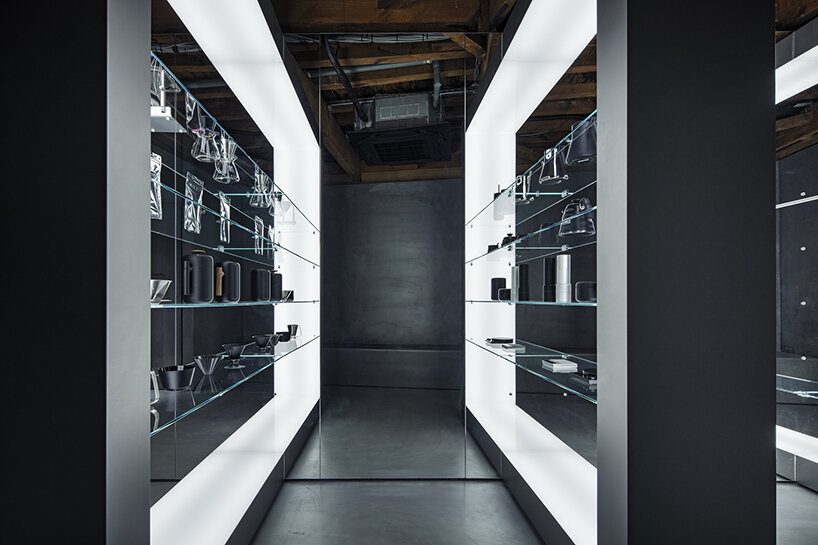
the shop is shaped by its functions, which are arranged like small dots forming a larger outline

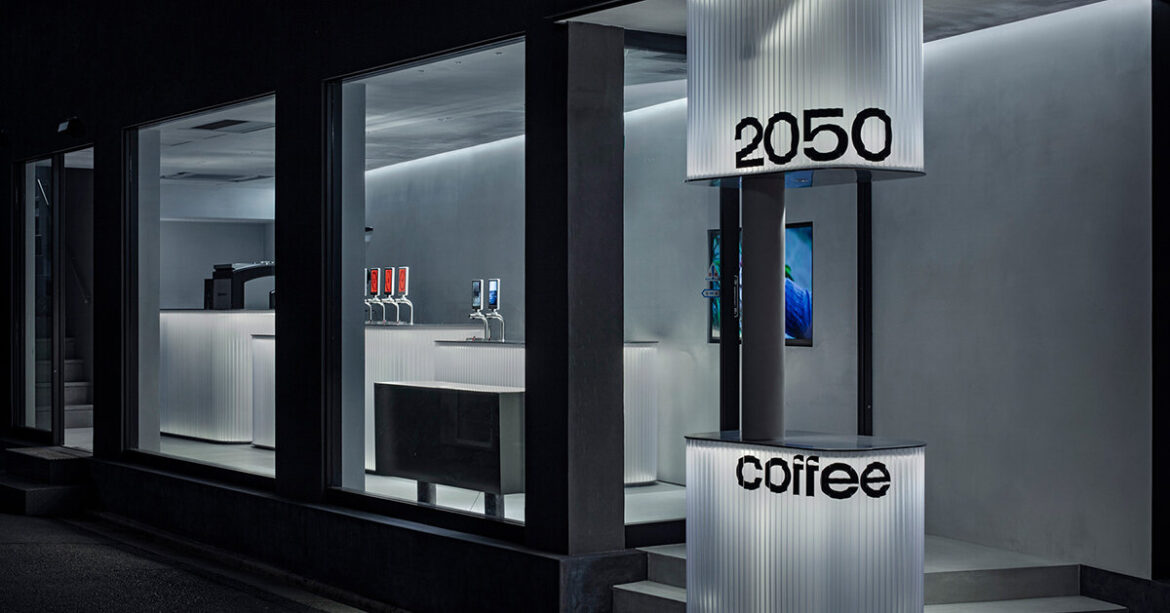
AloJapan.com